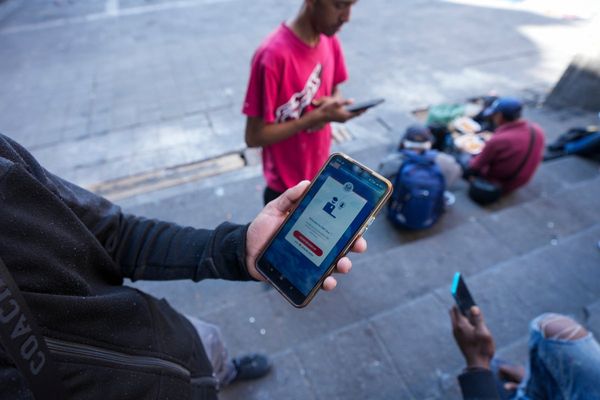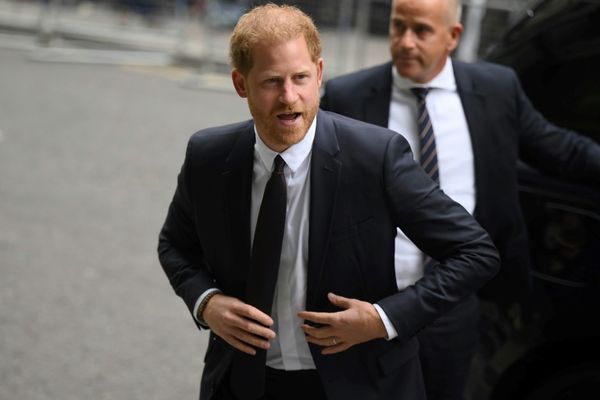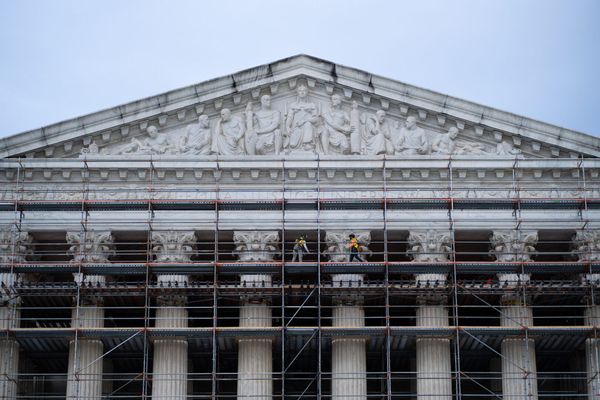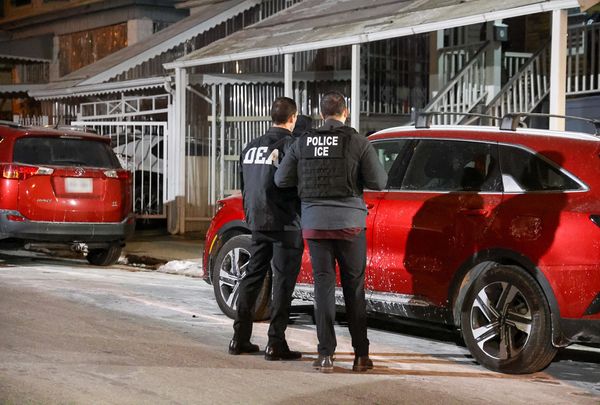
In January, as about 500 police officers carried out a 15-hour raid in one of Rio de Janeiro’s largest favela complexes, Rafaela Figueiredo de França was trying to distract her six-year-old daughter, who has been diagnosed with autism.
To prevent Maria from panicking amid the seemingly endless barrage of deafening gunfire – so intense that it even brought down the wall of a nearby house – De França shut the windows and turned on two fans. “It’s a way of shielding her from the sounds of war,” said the mother.
Last year alone, there were 1,258 police raids in Rio’s favelas: an average of more than three a day.
For some of Brazil’s 16.3 million favela residents – 8% of the population – daily life can resemble that of a war zone: when there are no confrontations between criminals involved in activities such as drug trafficking, extortion and militias, there are police raids that often claim the lives of innocents.
In addition to the deaths and collateral damage to homes and belongings, gunfights take a more subtle and insidious toll on the population. A study by Rio’s Centre for Studies on Public Security and Citizenship (CESeC) found that residents of conflict-ridden areas are more likely to develop high blood pressure, chronic insomnia, depression and anxiety disorders.
The burden is even heavier on people with autism, who are more prone to hypersensitivity to loud noises.
“In 2020, during the pandemic, there was an operation here where the gunfire was so heavy that a nine-year-old autistic boy jumped out of a window because of the noise. Fortunately, he wasn’t hurt,” said De França, who is among the 54,000 people living in the 13 favelas of the Alemão complex, a population larger than 88% of Brazilian cities.
After speaking with dozens of other mothers of autistic children in the community, she realised that their children’s suffering during shootouts was a shared struggle, so in 2022, she founded the Star of Maria Stimulation Centre to support neurodiverse families in favelas.
The group has distributed 500 earmuffs to families with autistic children, and during police raids, its headquarters in the Alemão favela becomes a safe haven where parents and children can seek refuge.
“Hearing these mothers’ stories shook me,” said sociologist Julita Lemgruber, who coordinates CESeC and is one of Brazil’s leading public security researchers. “The shootouts’ toll on autistic children is yet another consequence of the country’s drug policies, which not only cause suffering, pain and death but also have an enormous economic cost to society,” she added.
A 2023 CESeC study of seven Brazilian states – including the two wealthiest and most populous, Rio and São Paulo – found that they spent R$7.7bn (£1.03bn) on the so-called “war on drugs”. This sum includes judicial costs for prosecuting drug-related cases and expenses for incarcerating those convicted, for example.
With the same amount, 954 new schools could have been built or 396 public healthcare centres maintained across those states.
“Supporters of drug prohibition often claim they do so to protect families and make society safer, but we know that the ‘war on drugs’ hasn’t reduced consumption or protected people,” said Lemgruber, who in the 1990s served as the director of Rio’s prison system and as the police ombudsman.
“Security forces aren’t going after the major drug traffickers. Instead, they’re using brutal force in areas where only street-level drug dealing takes place – poor communities where most of the population is Black,” she said.
On Wednesday, Brazil’s supreme court will resume hearing a case aimed at reducing the number of deaths caused by police during operations in favelas.
After a 2020 court ruling set rules for police operations – such as the mandatory use of body cameras and the presence of ambulances – the death rate fell by more than half. But Rio’s state government and city hall are trying to overturn the ruling, arguing that it is “limiting” police operations.
Psychologist and physiotherapist Monica Cirne Albuquerque, 57, runs the Movement and Life Institute, a physiotherapy centre in Alemão, and describes her work as “dealing with what’s left after violence.
“People in the favelas live in constant agony … a daily reality of uncertainty and fear,” she said.
During the 15-hour police raid in January, Albuquerque spent the timing making video calls to comfort patients. “One mother spent hours under the bed with her child … because it was the only place in the house where they could take cover from the bullets,” she said.
Like De França, she has also started distributing noise-cancelling earmuffs to patients.
“The demand is so overwhelming that during the last operation, I had to start handing out earmuffs to neurotypical children as well,” said De França. “One little girl stopped me on the street and asked, ‘Auntie, can you give me those things to put in my ears? I get really scared.’ That had never happened before.”







